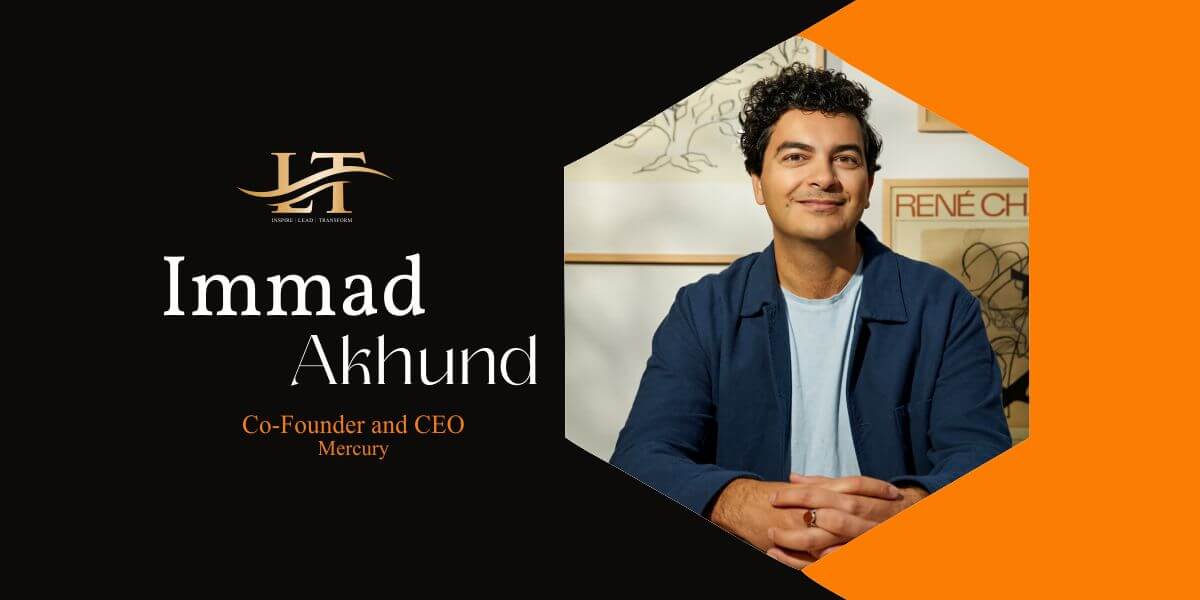In the sprawling digital corridors of Silicon Valley, where algorithms shape economies and founders dream of disrupting industries, a quiet revolution was brewing. It wasn’t heralded by flashy IPOs or breathless headlines. Instead, it began with a simple, persistent question posed by a man who’d lived the founder’s life: Why, in an age of instant innovation, was banking still stuck in the past?
The man asking that question was Immad Akhund, a British-born serial entrepreneur, computer scientist, and one of the most impactful fintech innovators of our time. Today, as the co-founder and CEO of Mercury, Akhund is rewriting the playbook on how startups bank, grow, and thrive. But his journey wasn’t forged overnight. It was a slow burn of startups built, ideas tested, and a deep understanding of what founders really need to succeed.
“My goal is to build a company that lasts for 100 years — one that founders trust, not just because we have good features, but because we understand them.”
The Early Code
Immad’s journey begins far from the noise of Wall Street or the pitch decks of Sand Hill Road. Born in the UK and trained in Computer Science at the University of Cambridge, Akhund had the kind of academic pedigree most would envy. But he wasn’t interested in resting on credentials. He was interested in building.
In 2007, he co-founded Clickpass, a Y Combinator-backed single sign-on service that aimed to simplify internet logins. Though Clickpass was acquired by Yola in 2008, the real win was the lesson: simplify complexity, and you’ll win user loyalty.
Next came Heyzap in 2008, a platform for mobile ads and developer tools that scaled impressively and was eventually acquired by Fyber for $45 million. Through it all, Immad was refining his craft—learning the nuances of product-market fit, the pain of scaling, and the absurdity of dealing with traditional financial systems as a fast-moving tech founder.
The Pain Point That Sparked a Revolution
Despite having built and exited multiple companies, one frustration never went away: banking. From account setup delays to outdated interfaces and inflexible customer service, Immad realized something startling: startups were trying to reinvent the world with tools designed for the past century.
He didn’t want to just “fix” banking. He wanted to reimagine it. In 2017, Akhund began laying the foundation for a product that would speak the language of modern founders. Not just in features, but in philosophy.
That product would become Mercury.
Mercury: Built by Founders, for Founders
Launched in 2019, Mercury was a breath of fresh air in a stale industry. More than a bank, it was a financial operating system for startups. Sleek UI, smart integrations, instant account setups, and features like programmatic payments and API access turned what used to be a chore into a competitive edge.
Mercury wasn’t trying to be the biggest bank. It was trying to be the smartest. And it worked.
Today, Mercury serves over 100,000 customers, including some of the world’s fastest-growing startups. It has raised over $160 million from elite investors and has become a default choice for tech founders who demand speed, control, and elegance.
But Akhund didn’t stop there.
Community at the Core: Mercury Raise and Angel Investing
Immad understood something profound: a bank can support startups with capital, but founders need more than money. They need connections. They need mentorship. They need believers.
To solve that, he launched Mercury Raise, a platform to connect early-stage startups with top-tier investors. It was a matchmaking engine for innovation, helping turn ideas into funded companies.
Meanwhile, Immad quietly became one of the most prolific angel investors in Silicon Valley, with over 300 portfolio companies to his name, including Airtable, Substack, and Rappi. He wasn’t just building Mercury—he was building an ecosystem.
“Most of what you need to know about startups, you learn by doing — by failing fast, learning faster, and listening hardest.”
The Legacy in the Making
Immad Akhund is not a loud visionary. He doesn’t chase press or fortune. What sets him apart is his empathy for the builder. Every product Mercury ships, every founder Mercury backs, every community Mercury supports—it all reflects his philosophy:
“Design beautifully. Build thoughtfully. Serve obsessively.” He is a Titan not because he built a unicorn, but because he built trust in an industry starved for it.
In a world of buzzwords and breakneck valuations, Immad Akhund is playing a longer, deeper game: to reshape the very foundations of how startups engage with money. This is not just fintech. This is the infrastructure of innovation. And at its helm stands a quiet coder with a bold dream—to make the system work for the builders.





